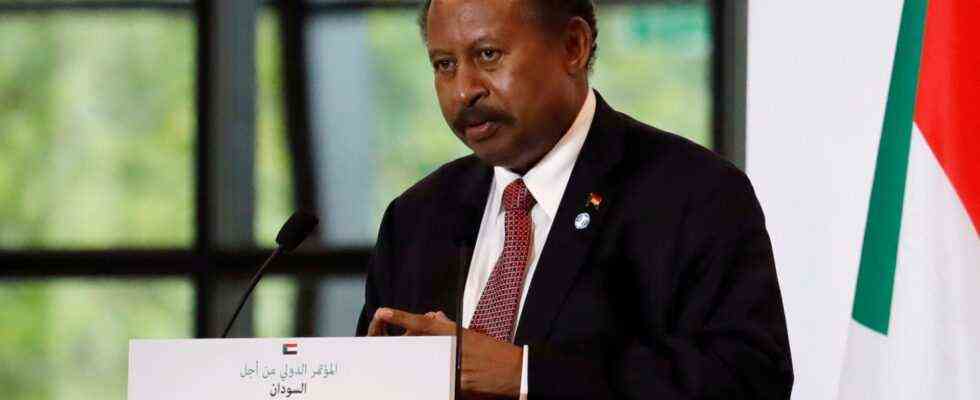Status: 10/27/2021 9:02 a.m.
After the military came to power in Sudan, Prime Minister Hamdok, who had initially been arrested, was able to return home. In response to the renewed coup, Germany is threatening to cut financial aid for the time being.
Prime Minister Abdullah Hamdok, who was ousted in the renewed military coup in Sudan, was allowed to return to his own home. This was announced by the Hamdoks office. His wife was also brought to the couple’s house on Tuesday evening. It is still unclear whether Hamdok is now under a kind of house arrest. His house is heavily guarded.
Earlier this week, the military took power in the African country in a coup. Hamdok was arrested and taken to the home of the country’s highest general, Abdel-Fattah Burhan. Shortly afterwards, the military declared a state of emergency and announced that the interim cabinet and the ruling Sovereignty Council had been dissolved.
USA welcomes the release of Hamdok
Burhan announced on Tuesday that he wanted to release the prime minister again. The US welcomed Hamdok’s release from home custody. US Secretary of State Antony Blinken said he telephoned the deposed prime minister and then asked the military in Sudan to release all “civilian leaders” and “guarantee their safety”.
In response to the seizure of power in Sudan, the US had frozen its financial aid to the country for the time being. The equivalent of around 603 million euros. The EU has also threatened to temporarily end its support. The attempt to undermine the transition process in Sudan is “unacceptable”, said EU foreign policy chief Josep Borrell on behalf of the 27 member states.
Germany also threatens to freeze financial aid
Federal Foreign Minister Heiko Maas also warned that Germany would also put its financial aid on hold under the given conditions. The coup ripped off this commitment, it was said in a message. Maas called the coup a “catastrophic development”. He puts the country “in a threatening position and calls into question the democratic and peaceful future of Sudan, for which the international community has been committed.” The military should “not stand in the way of democracy”. Maas also urged that prisoners should be released and that the deposed civilian-led transitional government should be reinstated.
The UN Security Council also discussed the situation in Sudan at an emergency meeting and subsequently expressed concern about the developments. However, the 15 members of the committee could not agree on a joint official declaration.
Nationwide protests
In Sudan, after the fall of Bashir, a so-called Sovereign Council took over the affairs of state, in which the military and civilians share power. Since then, the country has been in a fragile transition phase, which is expected to end with the establishment of a civilian government in 2023. High inflation, economic difficulties and deep political divisions exacerbate the situation.
Across the country, the Sudanese protested against the dismissal of the transitional government. Thousands of people took to the streets in the capital Khartoum and other cities in the country on Tuesday as well. Security and military forces used tear gas against the demonstrators. As the AFP news agency reported, participants were said to have been shot with live ammunition during protests on Monday. At least three people were killed and more than 80 demonstrators were injured.

